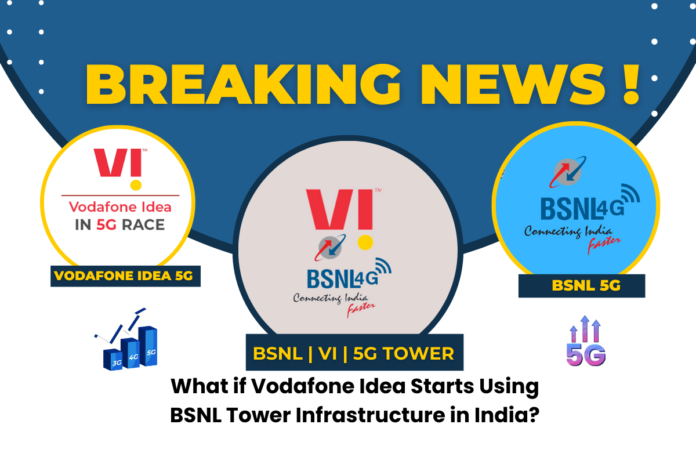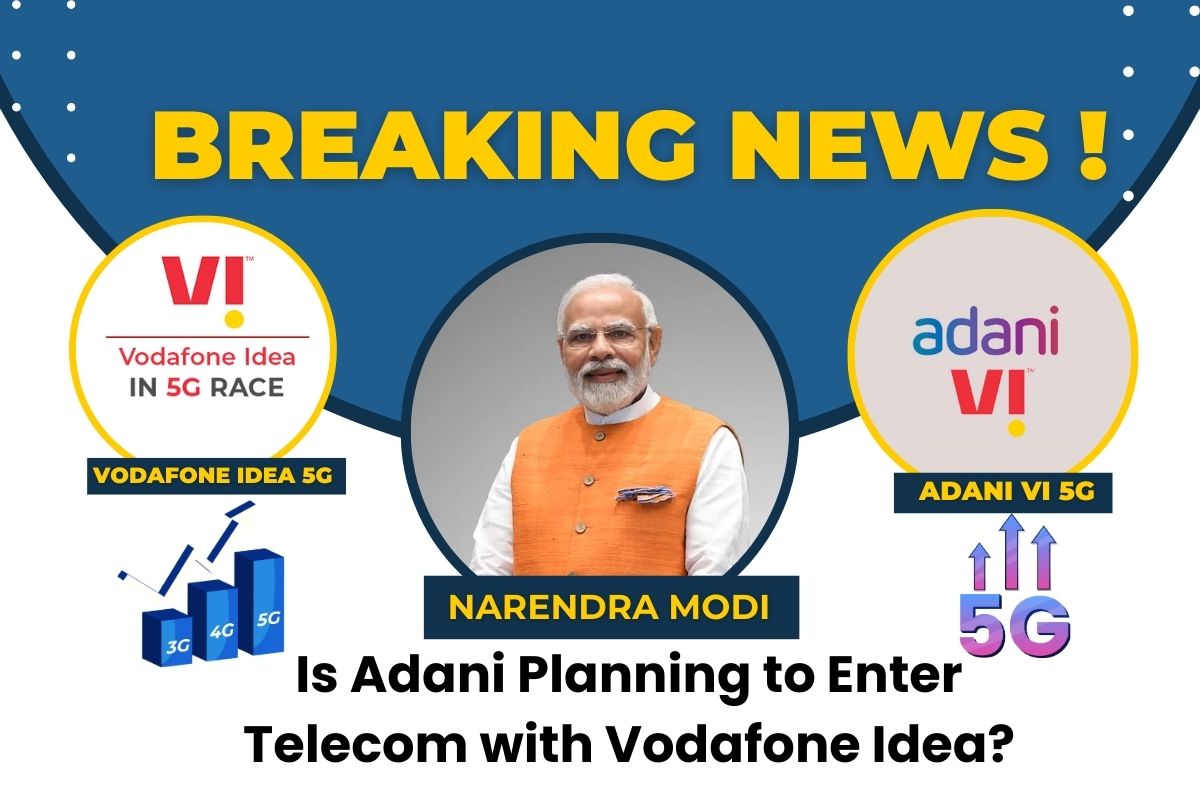In the rapidly evolving telecommunications landscape of India, collaboration and resource sharing are becoming essential strategies for survival and growth. One such potential collaboration that could significantly impact the industry is Vodafone Idea (Vi) leveraging Bharat Sanchar Nigam Limited’s (BSNL) tower infrastructure. This strategic move could lead to various benefits and challenges for parties, the industry, and consumers.
Background
BSNL, a state-owned telecommunications company, owns a vast network of tower infrastructure across India, especially in rural and remote areas. On the other hand, Vodafone Idea, a major private player, has been struggling with financial challenges and declining market share. Utilizing BSNL’s infrastructure could be a win-win situation, offering mutual benefits.
Benefits for Vodafone Idea
1. Cost Efficiency:
Reduced Capital Expenditure: By using BSNL’s existing towers, Vi can significantly cut down on the capital expenditure required to build new infrastructure. This could help the company allocate resources to other critical areas like improving service quality and expanding its user base.
Operational Savings: Maintenance and operational costs associated with tower infrastructure would also be reduced, as these expenses would be shared or handled by BSNL.
2. Enhanced Coverage:
Rural Penetration: BSNL’s extensive presence in rural and remote areas can help Vi expand its reach to underserved regions, thereby tapping into new customer segments.
Improved Service Quality: Better coverage in urban areas through shared towers can lead to improved service quality and reduced call drops, enhancing customer satisfaction.
3. Faster Rollout of 5G:
Leveraging existing towers could accelerate Vi’s 5G rollout plans, allowing the company to compete more effectively with rivals like Reliance Jio and Airtel, who are also aggressively pursuing 5G.
Benefits for BSNL
1. Revenue Generation:
Leasing Revenue: Renting out tower space to Vi would provide BSNL with a steady revenue stream, helping the financially struggling state-owned company improve its financial health.
Infrastructure Utilization: Optimizing the use of its existing infrastructure ensures that BSNL’s assets are more efficiently utilized.
2. Technological Collaboration:
Upgrades and Maintenance: Collaboration with a private player like Vi could lead to joint investments in upgrading tower technology and maintenance, thereby improving the overall quality of the infrastructure.
Impact on the Industry
1. Competitive Dynamics:
Increased Competition: Enhanced infrastructure for Vi would intensify competition in the telecom market, potentially leading to better services and lower prices for consumers.
Collaborative Models: This collaboration could set a precedent for more public-private partnerships in the industry, promoting resource sharing and operational efficiency.
2. Market Stability:
Strengthened Vi: A stronger Vi, bolstered by improved infrastructure, could stabilize the telecom sector, which has seen significant upheaval and consolidation in recent years.
Rural Connectivity: Improved services in rural areas could drive digital inclusion, supporting government initiatives aimed at bridging the digital divide.
Challenges and Considerations
1. Regulatory Approvals:
Ensuring compliance with regulatory frameworks and obtaining necessary approvals from the Department of Telecommunications (DoT) and other bodies would be crucial for the partnership’s success.
2. Operational Integration:
Coordination: Effective coordination between Vi and BSNL for tower maintenance and upgrades will be essential to avoid operational disruptions.
Technological Compatibility: Ensuring that the technological infrastructure of both companies is compatible will be crucial for seamless service delivery.
3. Financial Investments:
Initial Costs: While there would be long-term savings, the initial costs of integrating and upgrading infrastructure could be significant.
Investment Sharing: Clear agreements on cost-sharing for any upgrades or maintenance would need to be established to prevent disputes.
Final Words
The potential collaboration between Vodafone Idea and BSNL in sharing tower infrastructure holds promising prospects for both companies and the Indian telecom industry.
By leveraging BSNL’s extensive tower network, Vi can enhance its coverage, improve service quality, and expedite its 5G rollout, while BSNL benefits from additional revenue and better infrastructure utilization.
Despite the challenges, such a partnership could lead to a more competitive and stable telecom market, benefiting consumers with improved services and connectivity. This strategic move could indeed be a game-changer in the ever-evolving telecommunications sector of India.
Read Also:




